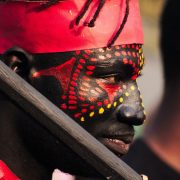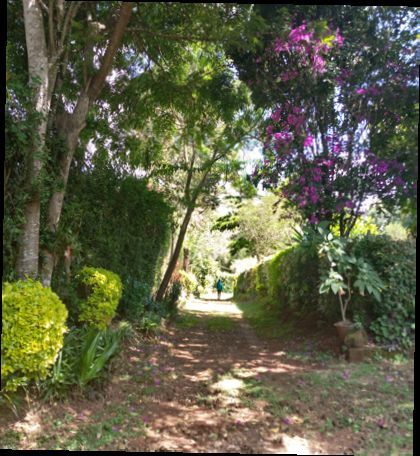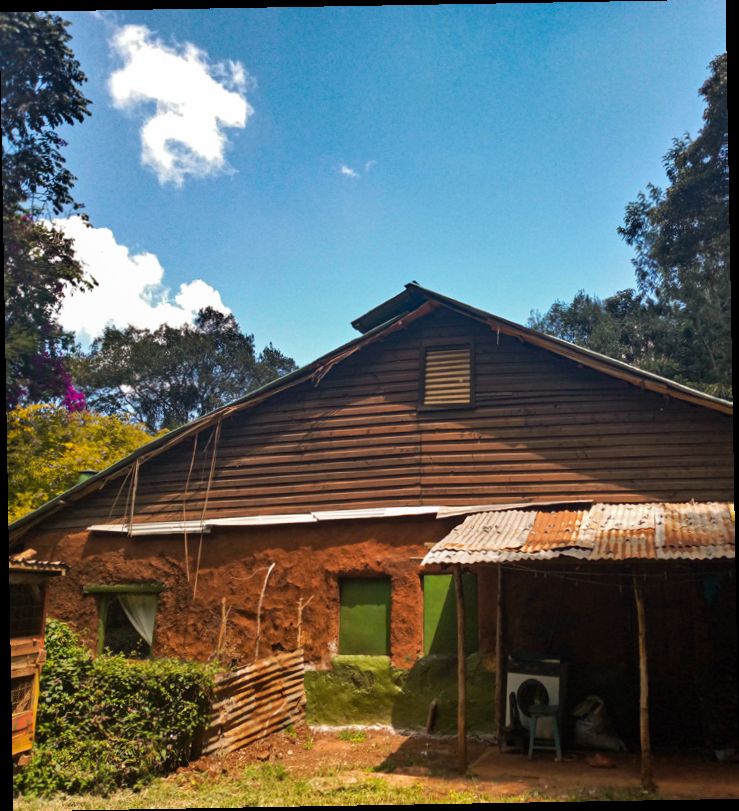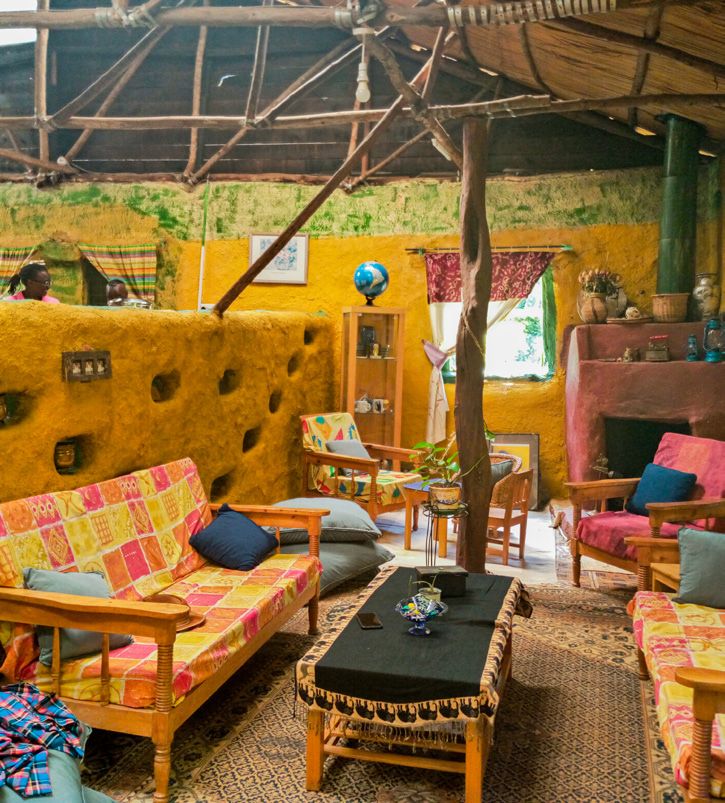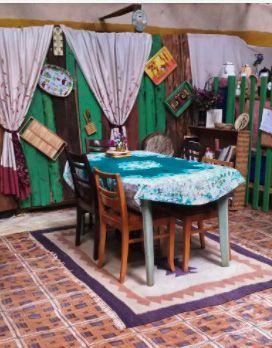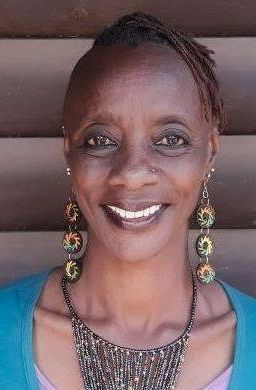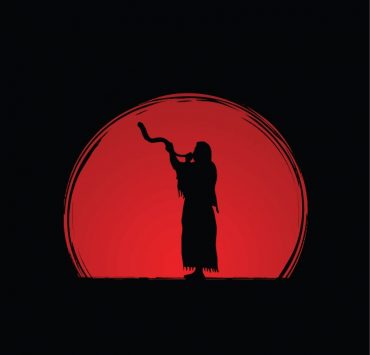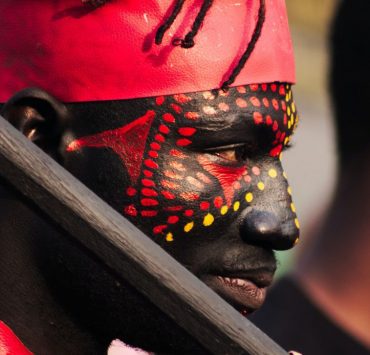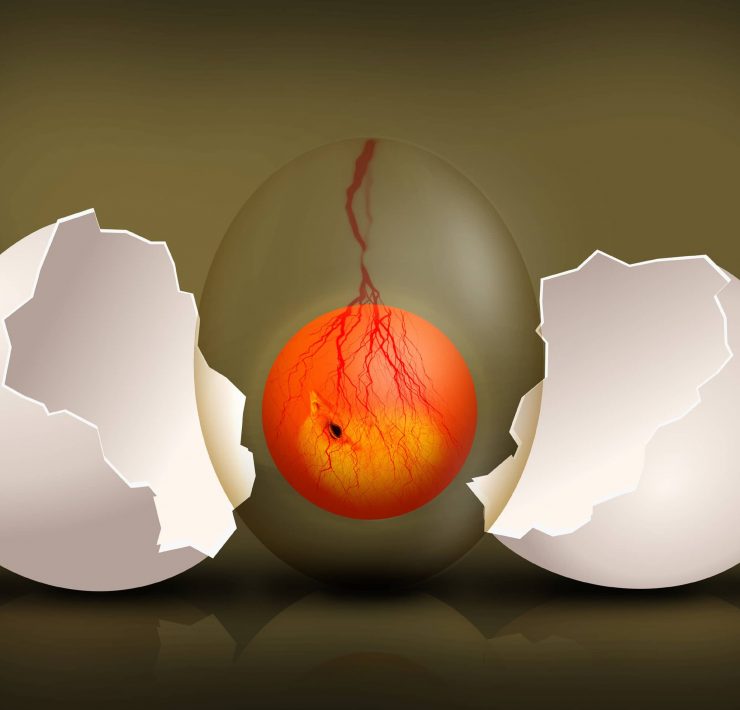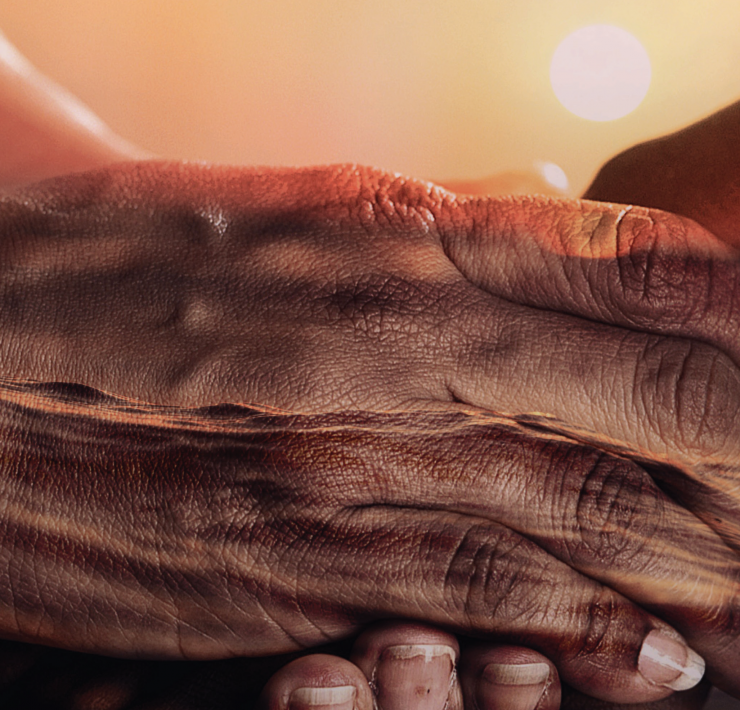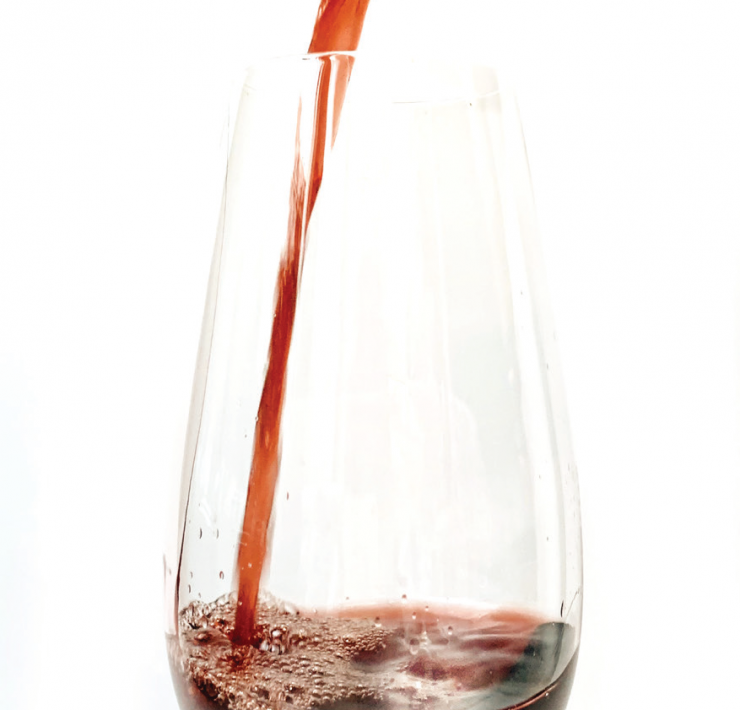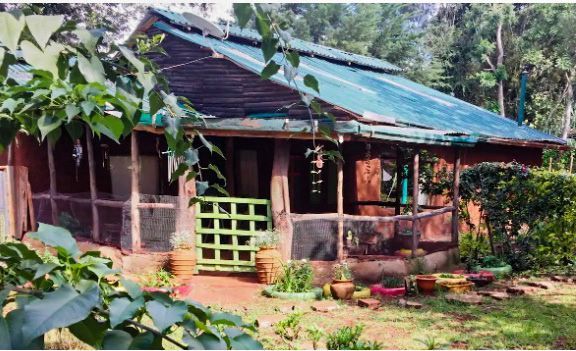
Chioma Phillips is the Editor of Msingi Afrika Magazine and…
Read Next
The Beauty of Building and Living in a Traditional Afrikan Earth House
It would be all-too-easy to blame COVID for the disconnections in our lives, wouldn’t it? The warm hugs, the genuine sincere smiles, the companionship of those who uplift our spirits. But it would be a deception to claim that it was COVID’s fault. COVID came instead to show us what it is that we have lost, by forcing us away from the lifestyles that we have chosen. Full of rush and care and stress and burdens of debt and disconnections from loved ones and friends and family, in pursuit of what people have called success, instead of the sweet simplicity of authentic living. But what if genuine, simple living were possible? Welcome to the possibility. Shibero Akatsa has found a way and she has broken out of the mold that the world has tried to force everybody to live in. She constructed her home out of the earth according to a design that was birthed in her imagination. And the cost? In a neighborhood with so much pressure? Barely nothing. She has broken the stigma that modern living has told you was impossible to break, but would you dare to take a walk away from what you have called life and enter into a normal where you could simply live and life was simply sweet? Come with us on this journey as we explore how she did it and unearth the thing in your heart that secretly desires to do it.
(The link to the full length video interview is at the end of this article)
Tell us about the Garden of Eden and how it came to be.
We bought this plot of land in 1998, at the time we were still in the UK. We then had one of the houses built, but there was pretty much nothing here apart from the wild grass. We moved back to Kenya and I really got into gardening. I love gardening, I love landscape, I am also a totally outdoorsy person and so connected to nature and that is how I believe I came to know the God, our God, my Father, the Creator. When I was thinking about, Father what name can I give this place? He dropped it into my spirit, “The Garden of Eden” and that is for a very good reason because when I first got to know the Lord, when I became born again, my favoritest book was Genesis because of all the creation and the nature. I was so fascinated by how God created.
That’s how it came to be called The Garden of Eden and it has just become that, it has become more of a healing space.
When I was practicing a lot, my psychotherapy, when my clinic was running, all you had to do was just come and sit and let the Holy Spirit do the rest of it. That was how it came to be known as The Garden of Eden and to be the way it is.
You built the house from the earth itself using traditional practices. Please tell us about the inspiration behind that, why did you go that way?
When I was little, I loved playing with mud outside. Those are the things, when you look back; they were saying who you are. I loved it. I used to make models, model houses, grass houses, you name it. Before I put this up, I had three other mud huts in this area, but they were like a summer school for kids when they were on holiday. They would come and they would get to learn about the environment as well as about what God has provided for us to live. They had never seen a mud house. For a lot of people, when you talk to them, about mud houses, they immediately have in mind a hut that’s dark and cold, because that’s what’s been spread around. Even with adults. I realized that not many children actually go upcountry to see the reality, to see where we are coming from as human beings. So those three mud huts were a holiday camp for children and we did a lot of outdoor stuff, we did gardening, we talked about how God gave us mud to create things like homes and we made little mud huts for ourselves for them to take home. I introduced them to the long drop toilet and it was like huh?! The way we’re bringing up our children now, they will lose this. They have no idea about the original, the authentic, our ancestors, how we lived, the peaceful lifestyle; you don’t have to have everything. And they absolutely loved it, it was different and they also got to touch and see cows, because I also kept – it was Old McDonald’s farm! They got to know where milk comes from they got to know where carrots and tomatoes came from – a lot of kids are losing all that stuff.
From that I kept on thinking I want to build something else, something that is going to speak to people about life, about how we all came from one place, what we need in life, to lead an intentional, fulfilled, purpose filled life – and this came up. I drew it out, I did a model and then I realized there are many of these kinds of houses being built abroad and they can stand for so long, they are actually really beautiful houses and they are unique. But here, until we see amzungu doing it only then will we accept it. I realized that we need to start preserving our culture. We need to let people know that we too had and have those building skills. They’re just not western and that the houses that our parents lived in worked and they can stay up and you can make it however you want to make it and you don’t have to spend much money.
So I started this project and I loved it. I knew what my vision was and I had it down and I got to realize that even the people that were helping me build had to get their minds renewed as well. People were telling me, “But you’re in Karen, how can you build a mud house?” (Karen is suburb in Nairobi that is considered ‘high end’). My response was, “No, I know what I want and I know exactly how I want it and this is how we’re going to do it.” There was a struggle there in educating them to let them know yes I am in Karen but this is who I am.
My neighbors were so curious, I had people coming and asking to see it. The houses next door were built by Chinese, even the Chinese wanted to come. But I said no one is entering this compound. Because this is like seeing my heart and when you get inside it speaks of who I am. I recycled a lot of stuff, I made it very creative, and for people who like to dot their i’s and cross their t’s, this might not be for you.
It was up in six months to a year and it followed the traditional Western Kenyan style of building traditional homes, which again going back upcountry people don’t seem to be appreciating those building skills. It is a skill and we need to preserve it. Part of the reason for this house is that we are preserving Afrikan building skills and demonstrating that we can also temper it to make it livable within the 21st century, so that it’s not just this vision of a dark hut upcountry. So that’s another reason why it went up: to educate and to preserve.
Then the other thing is recycling. I have recycled so many things and it comes back to, ‘what do you have in your hand?’ Many of us rush out and we buy so many expensive things but don’t stop to think what the purpose of their home is. What is the purpose of having to spend so much money, when most of the time you’re not going to be in there? So, why don’t you try recycling what you already have and most of the time we’ve got so much that we just chuck away? So, it’s again trying to educate people to just stop, think, be intentional about when you are building, what is your purpose at the end of the day? What is your motivation? Is it you want people to see I’m living in a huge thing when you’re hardly ever there, and which you hardly get to enjoy?
A lot of us grew up in homes where we used every single bit of the home, a lot of us played outside. The purpose of this was it is a home that every room can be used and the garden is friendly in that it can be also used when you want to sit and hang out, when you want to go and pluck something from the garden; you know that kind of stuff. Some people can’t live in a place like this because it’s not modern. I keep telling people I’m a minimalist bottom line and I love nature. When I’m sleeping at night I hear the owls, I hear all that, I see the moon, I see the light coming through the transparent mabati (roofing sheet) and I feel so safe, you wouldn’t believe the feeling of safety and home. And I think a lot of it has to do with my spirituality. I feel, yes, this is who I am.
A lot of people, our parents’ generation and onwards were convinced that living in houses made of earth was low class or was primitive or was backward and so they got themselves into a lot of financial messes and different things in order to acquire houses that were made of stone. Even now when you travel to rural areas you see a lot more stone houses coming up and you see how complicated life is becoming. How do we break out of that mindset and just reconnect to the simplicity of living free and clean from the encumbrances of what the world has called modern?
There are so many benefits to earth houses. I would start by letting people know or getting people to understand that an earth house is much cheaper. You don’t even have to go for the loans, the huge loans which you then have to pay back. All this soil came from here; that is the main ingredient in building a mud house. And then I would ask people, what kind of a lifestyle do you want? Many people don’t even stop to ask what kind of a lifestyle they want or even what kind of a lifestyle they are living. We are just busy, we are just doing. So we don’t stop to think about it that much. At the end of the day we know what it is that we want. We want that flat screen, that whatever… as opposed to values. What values? Is it about having enough time to be with your family? Is it about being able to do things from a place of rest and being at peace? What do you want out of life even whilst you’re working? They’ve got to make a choice at the end of the day.
Going back to that story about that guy who came to buy something from me, when we got inside the house he sat down and was exhaling and he asked me, “You actually live like this?” And I said, “Yes.” He said, “I wish I could live like this.” So I asked, “Why don’t you? Why can’t you?” You can guess the answer. The answer was, “My friends, my family, my wife. I can’t live like this.” So then I said, “Well, you’ve made a choice.”
I made this choice and it doesn’t matter what people think or what people say. This is my life, here on earth, I have got to live and be true to who I was created to be. We spend so much time trying to impress and people really don’t care about all that other stuff. If you fall into the category of people who want to be “Do you know who I am?” types “Do you know the kind of house I live in?” “Do you know the kind of car I drive?” Then this is not for you. So it’s a choice they have to make at the end of the day.
You help people who want to build these kinds of houses.
I’ll be running workshops where I give you all the information on how to build, from my perspective. The other thing I‘ll be doing is running a question and answer day accompanied by an Afrikan meal, because all this is tied in with traditional Afrikan foods which we used to eat. It’s a lifestyle.
I’d like to run a workshop on simple living for those people who want to learn how to live a de-stressed life and to be true to themselves. To be able to shake of the ‘I am so and so’s wife I need to look a certain way’ and the ‘I am so and so I am the head of a certain organization’. We wear so many masks which have trapped us, because we are trying to be what the world has called us to be as opposed to being what I am supposed to be. I’m called to be real, to be authentic and we’ve got the Holy Spirit to walk with us to teach us.
Tell us about the health benefits of living in a space like this one.
Every morning when I wake up I can feel the environment actually speaking to my heart. It’s about being able to be connected to nature, being connected to God. In the Garden of Eden there was that direct contact with God. They would be walking and talking at the end of the day, there would be that, “so how was your day?” The benefit of living in a place like this is it actually connects me so totally spiritually to our Father. When I do not have this, say I go away for a week or something, and I don’t have this I find my spirit feeling suffocated and I have got to get back into a space where I am connected with nature because it’s very true, God is in nature: “All heavens declare the glory of our living God.” You know we sing these worship songs about God in nature: nature worshiping Him, the birds they’re continually singing and worshiping him all day, the oceans coming and going; they’re all worshiping.
For me it is a continuous worship being in an environment like this which brings peace and when I find myself stressed I come and lie on the trampoline, if not on the trampoline, I’ll go across and lie on the grass. I’ll just look up into the sky and I’ll feel the wind and I will feel the whisper of the wind, I will feel it against my body, I will hear the birds and it’s that disconnect from man from the noises, the man made noises, some of them can’t be helped, but it is that “Be still and know that I am the Lord Your God,” that’s why I love this place and that’s why it’s got that healing effect; because you have to stop, you have to leave all your busyness outside. It is spiritually totally connecting with the Father, with who we were created to be. And that speaks to our souls deep down. That’s where the spirit is and God is calling and God touching base with you.
Also when it comes to the way mud houses are constructed from the beginning it’s about when it’s hot outside, it’s cool inside and when it’s cold outside it’s warmer inside. That is just naturally regulating itself.
When we’re building with stone and everything those things have got gases, they emit gases and you know we’ve gone and we’ve dug them up and breathed in and let me tell you what, those things actually affect you. They affect your health. You’re worse off in a stone house because of the stone, the digging the building and the materials we’re using to build than here where you’ve tried to keep everything natural because with nature you can’t really go wrong with natural stuff because that’s how we were born and created in The Garden of Eden.
I just want to read you something that I was reading last night that I found really interesting it’s called Eden the first home. “God Himself made for Adam and Eve their first earth home and a beautiful home it was. We shall call it a garden home. God chose a place from which four rivers flowed and there He planted a large garden.” So, already He has stated that the first home was made of earth. “But we are sure that no park which man has made could be so lovely as was the Garden of Eden.” It just caught me there, their first earth home.
Visit: www.shibero.com to learn more and to find out how to book a stay at The Garden of Eden.
Watch the full length interview here:
Subscribe now for updates from Msingi Afrika Magazine!
Receive notifications about new issues, products and offers.
What's Your Reaction?
 PIN IT
PIN ITChioma Phillips is the Editor of Msingi Afrika Magazine and the host of Msingi Afrika Television. Her hope is to see the Truth shared, with all who will listen, for the transformation of the people and the continent of Afrika - and the world. She believes passionately in the critical role that Afrika and Afrikans have to play on earth right now and hopes to ignite the spark that will cause them to see and believe who they are, so that they can live out their Truest lives for the remainder of their days.








